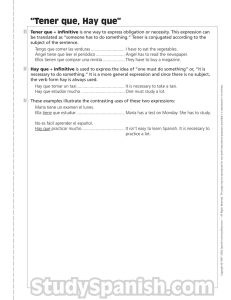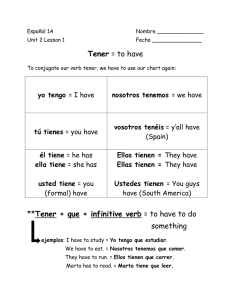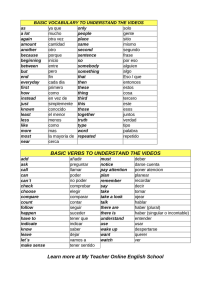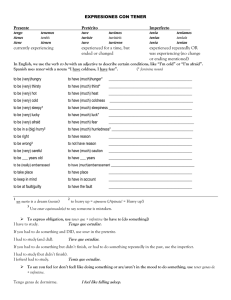Common Expressions with `Tener`
Anuncio
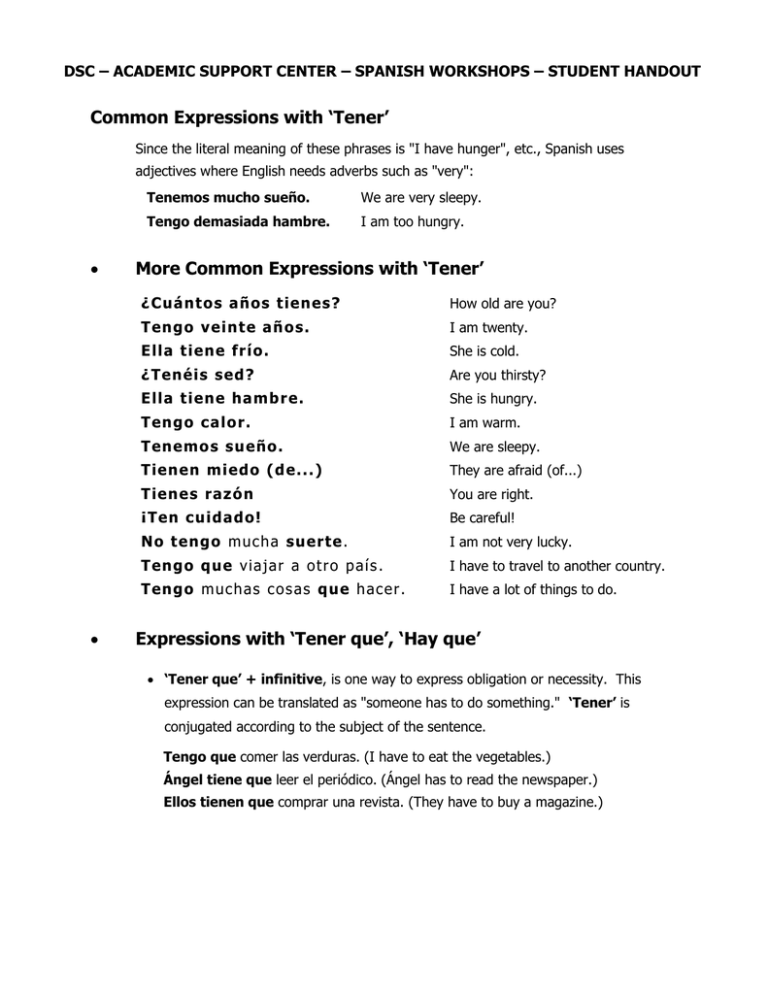
DSC – ACADEMIC SUPPORT CENTER – SPANISH WORKSHOPS – STUDENT HANDOUT Common Expressions with ‘Tener’ Since the literal meaning of these phrases is "I have hunger", etc., Spanish uses adjectives where English needs adverbs such as "very": Tenemos mucho sueño. We are very sleepy. Tengo demasiada hambre. I am too hungry. More Common Expressions with ‘Tener’ ¿ C uánt o s año s t ienes? How old are you? Tengo veint e añ o s. I am twenty. E lla t iene fr ío . She is cold. ¿ Tenéis sed? Are you thirsty? E lla t iene hamb r e. She is hungry. Tengo c alo r. I am warm. Tenemo s su eño . We are sleepy. Tienen miedo (d e... ) They are afraid (of...) Tiene s raz ó n You are right. ¡Ten c uidado ! Be careful! No t engo mu ch a suert e . I am not very lucky. Tengo que v ia jar a ot ro p aís . I have to travel to another country. Tengo mu ch as cos as que h ace r . I have a lot of things to do. Expressions with ‘Tener que’, ‘Hay que’ ‘Tener que’ + infinitive, is one way to express obligation or necessity. This expression can be translated as "someone has to do something." ‘Tener’ is conjugated according to the subject of the sentence. Tengo que comer las verduras. (I have to eat the vegetables.) Ángel tiene que leer el periódico. (Ángel has to read the newspaper.) Ellos tienen que comprar una revista. (They have to buy a magazine.) Hay que + infinitive is used to express the idea that "one must do something" or, "it is necessary to do something." It is a more general expression and since there is no subject, the verb form hay is always used. Hay que tomar un taxi. It is necessary to take a taxi. Hay que estudiar mucho. One must study a lot. Examples to show the contrasting uses of these two expressions: María tiene un examen el lunes. Ella tiene que estudiar. María has a test on Monday. She has to study. No es fácil aprender el español. Hay que practicar mucho. It isn't easy to learn Spanish. It is necessary to practice a lot.

